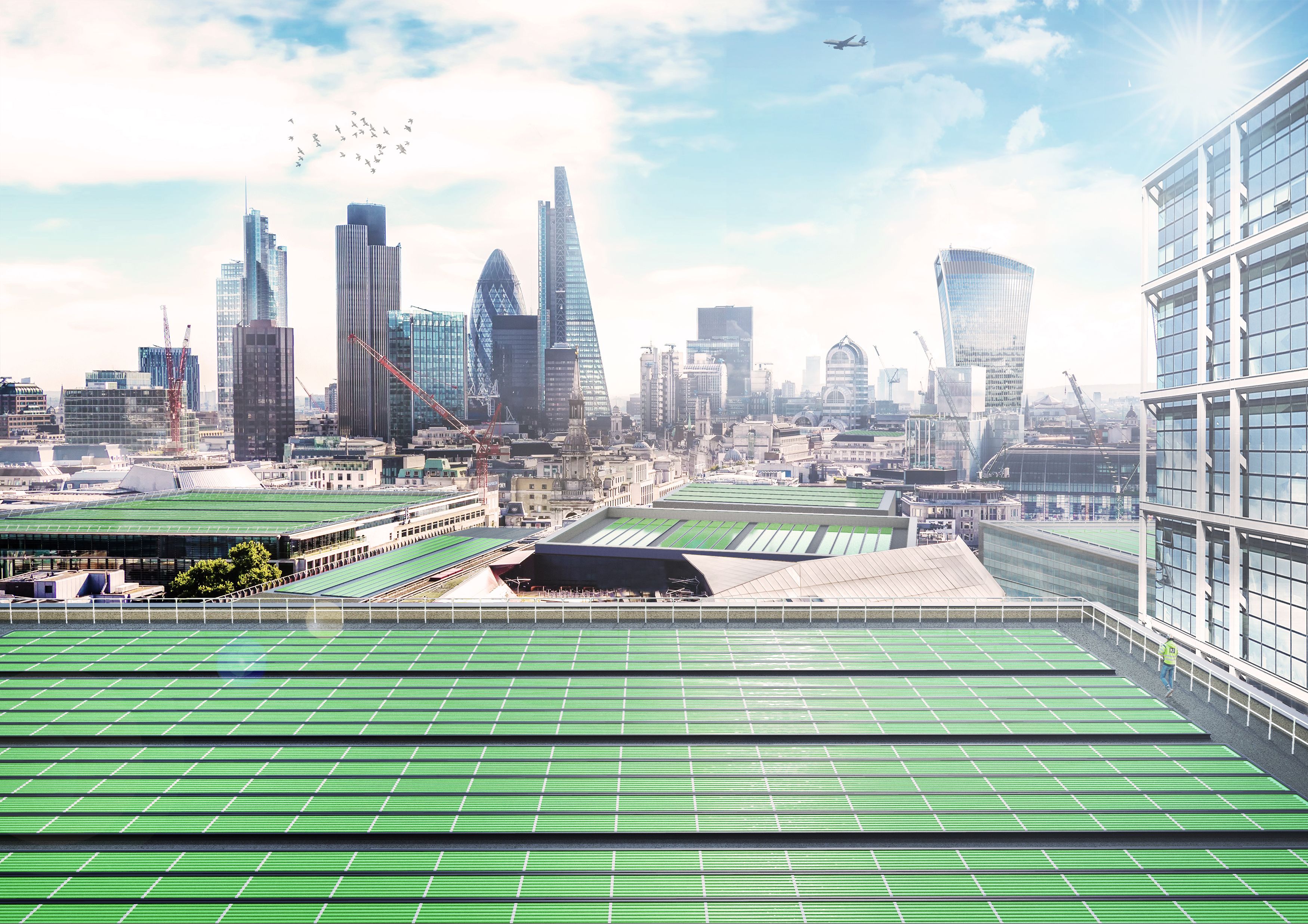UK scientists aiming to use bionic leaves to tackle air pollution

[ad_1]
This image shows how the system could look if installed across London.
Imperial College London | Thomas Glover
Imperial College London is to work with a start-up called Arborea to develop innovative new technology that it hopes will boost air quality in the U.K. capital.
In an announcement Monday, Imperial said that the BioSolar Leaf technology purified air by using the photosynthesis of microscopic plants.
Photosynthesis is a process through which plants use the energy of the sun to convert water and carbon dioxide into glucose and oxygen.
Arborea’s system enables plant-life like microalgae and phytoplankton to grow on “solar panel-like structures.” These can be installed in the urban environment to improve the quality of air, although they do not themselves generate electricity like a conventional solar panel would.
Imperial will give the company — which was set up by a former student, Julian Melchiorri — funding to develop an outdoor pilot of its cultivation system on its campus in White City — a district in the west of London.
According to the company, one acre of its system can remove carbon dioxide and produce oxygen 100 times more than one acre of forest.
Melchiorri said the company was “excited” about its collaboration with Imperial.
“In our ever-growing modern cities, cooperation between start-ups, academic institutions and governmental bodies is critical to enable and accelerate sustainable innovation that benefits both our society and environment,” he added.
He went on to state that the pilot plant would “produce sustainable healthy food additives while purifying the air, producing oxygen and removing carbon dioxide from the surrounding environment.”
Air pollution is a serious problem globally. According to the World Heal Organization (WHO), 4.2 million people die each year “as a result of exposure” to outdoor air pollution, while 91% of the planet’s population live in areas where the air quality exceeds WHO guideline limits.
Authorities in London are looking to mitigate the impact of air pollution through an Ultra-Low Emission Zone (ULEZ) that operates in central London 24-hours a day, seven days a week.
The ULEZ is built around something called “Euro Standards.” A framework introduced in 1992, the standards encompass emissions controls which set limitations for nitrogen oxides and particulate matter from a vehicle’s engine.
Petrol vehicles that do not meet Euro 4 standards and diesel vehicles that do not meet Euro 6 standards will have to pay a daily £12.50 ($16.14) ULEZ charge in addition to an existing £11.50 Congestion Charge.
Source link






